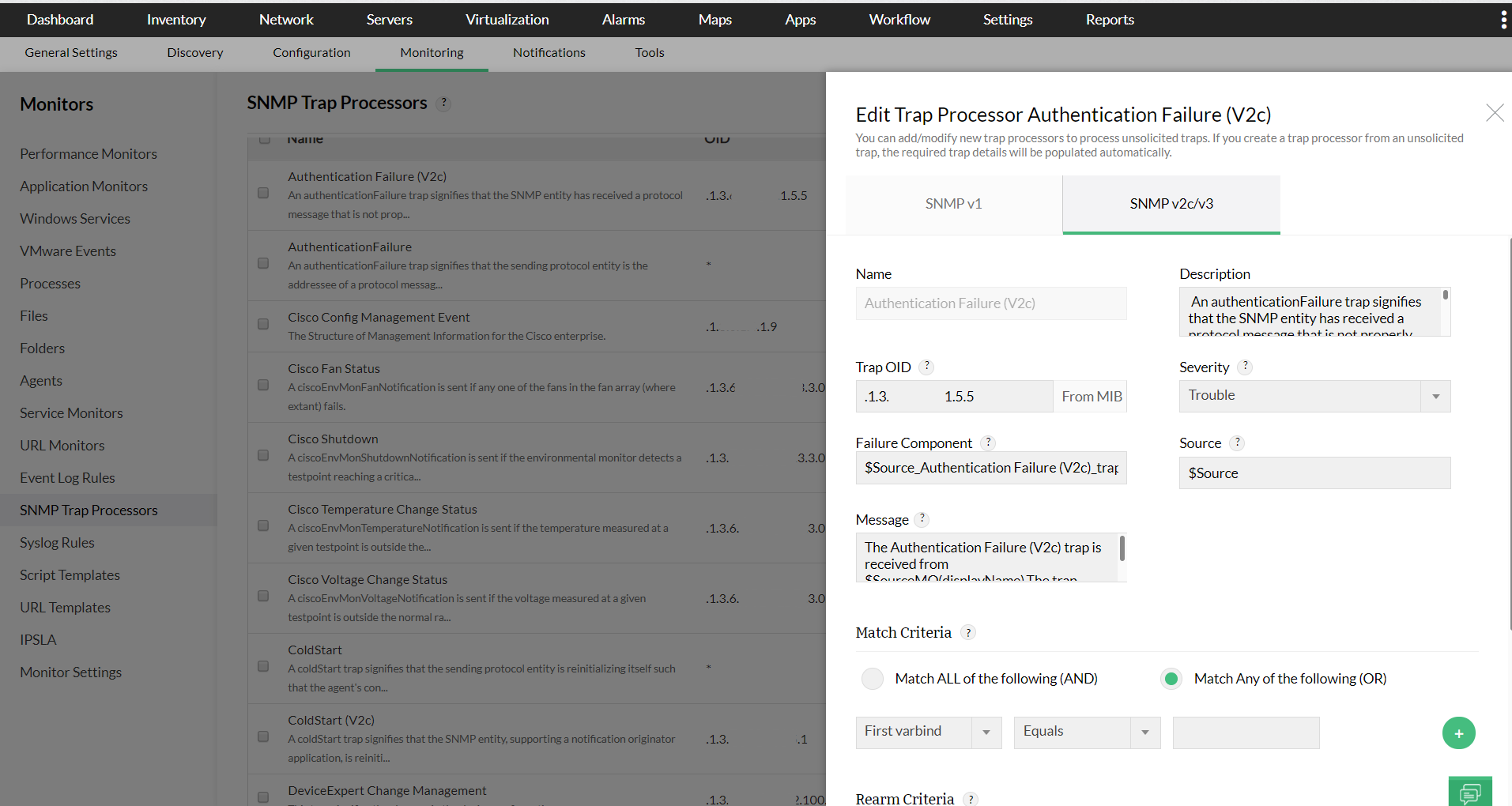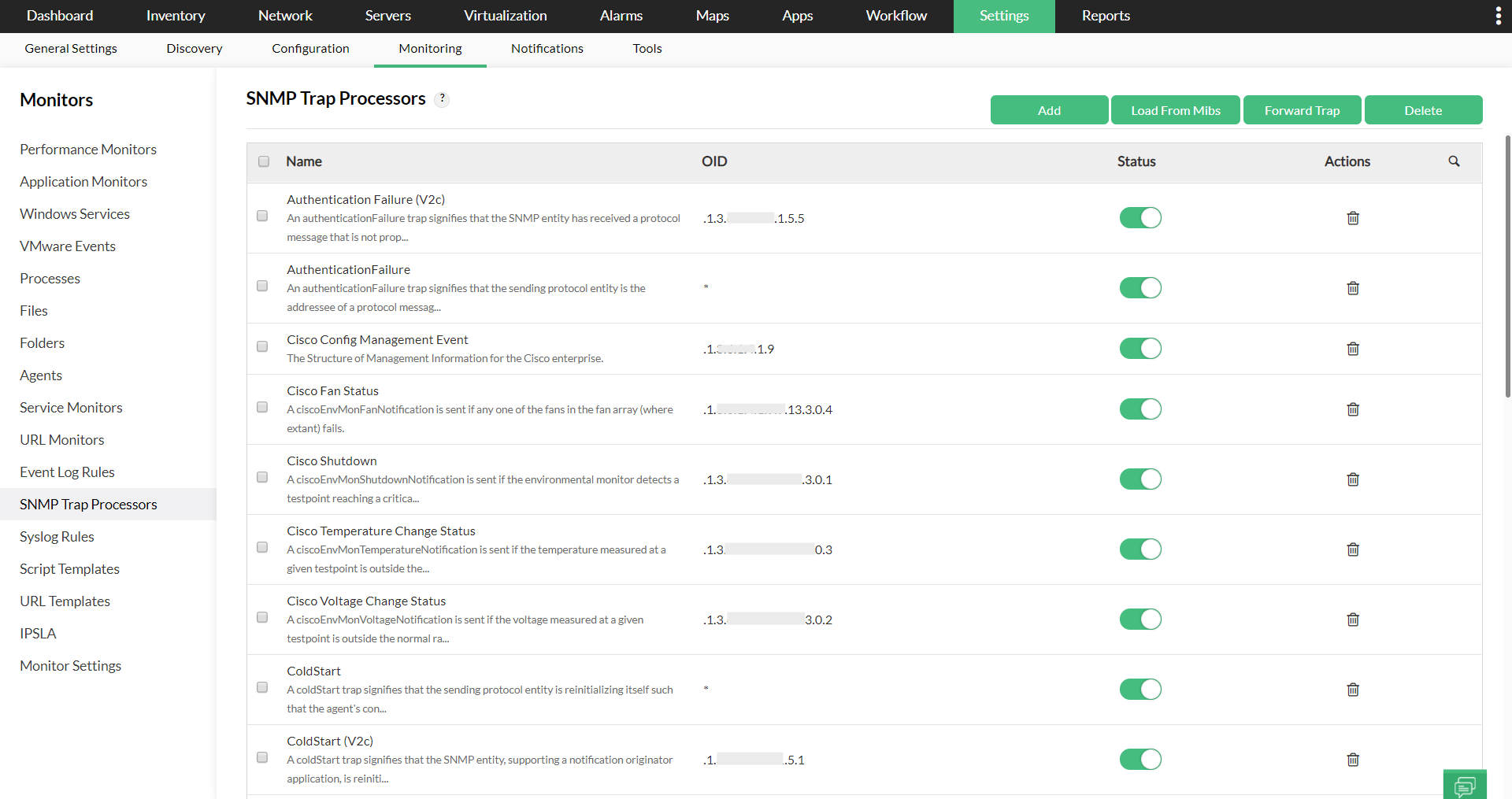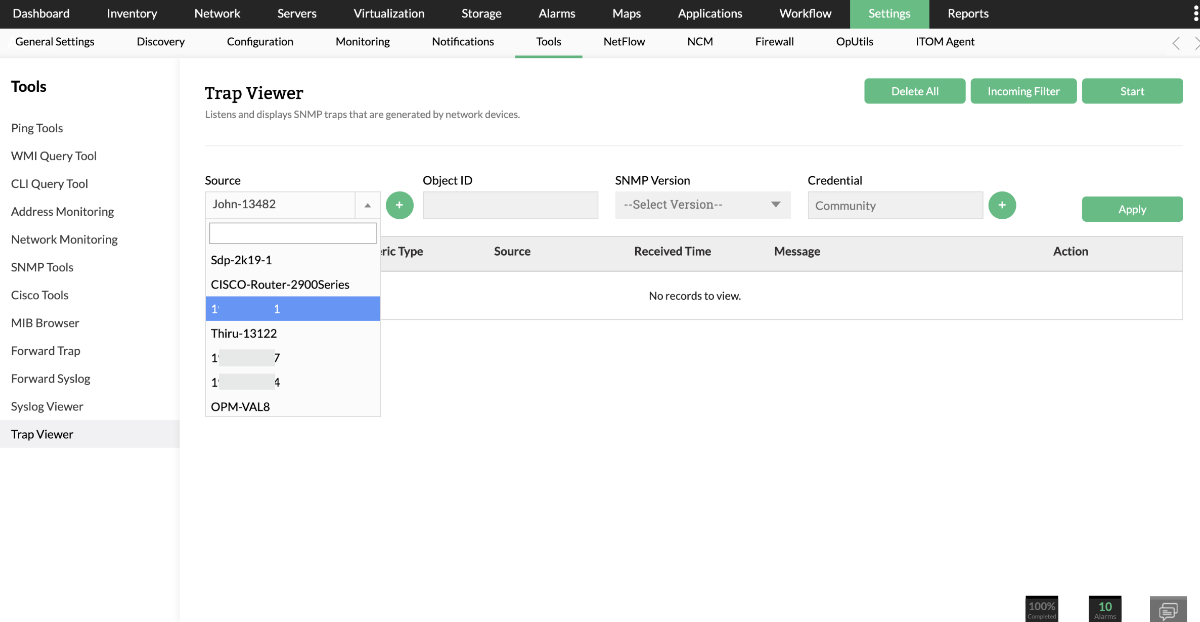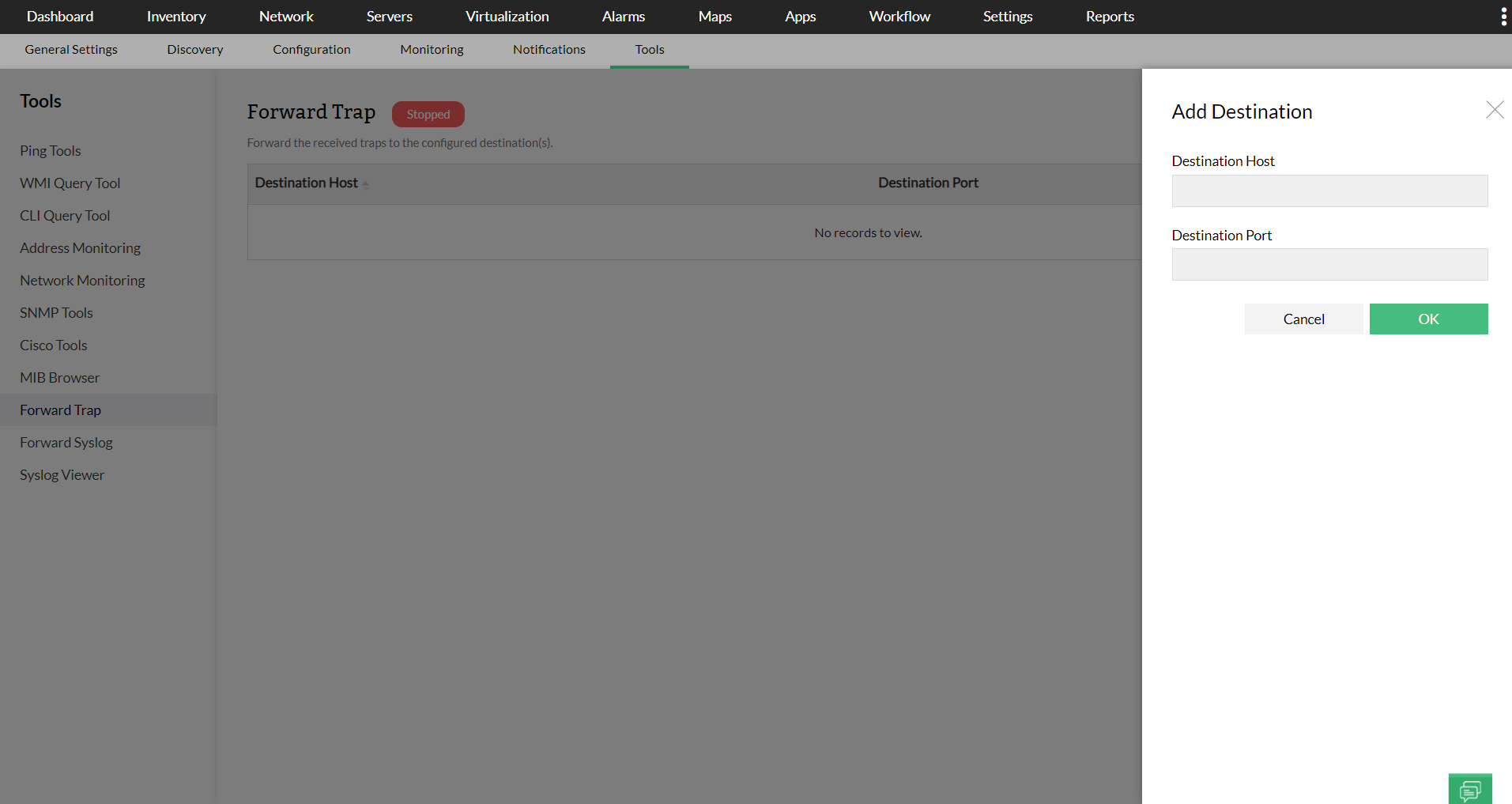SNMP (Simple Network Management Protocol) is one of the important aspects of network management where network devices, including routers, switches, and servers, send out SNMP traps as asynchronous notifications to a central management system whenever predefined conditions are met. In a nutshell, the trap is triggered whenever an event such as unavailability of a critical server or high temperature of a hardware occurs. The basic idea behind SNMP traps is alert mechanism that alerts the administrator based on predefined inputs.
SNMP trap monitoring is important to business networks are they help detect network issues promptly wherein corrective actions are taken immediately. The issues are detected much earlier, before they impact the network operation. This helps reduce network disruptions and downtime. Monitoring the SNMP traps regularly will help maintain optimal performance of network devices such as servers, storage devices, routers, switches etc. The data gathered from the SNMP trap notifications helps the administrator make informed decision about the organization's resource planning. In summary, SNMP trap monitoring helps organizations maintain reliability and sustainability.
Let's gain a simple understanding of the working of SNMP traps.
On account of a specific event like hardware failure of a critical server, the device sends a trap message to the central management system. In this case, it is a network monitoring software. The communication happens over port 162. These traps contain specific event details and the network monitoring system takes corrective action based on the predefined instructions such as raising an alert or carrying out an automated workflow. This way, the administrators can gain real-time insights into the performance of the network and will be able to take corrective actions based on the issue identified.
Here is what OpManager does with SNMP monitoring.
SNMP trap is one of the industry's most used passive monitoring techniques. It helps Network Management System (NMS) such as OpManager to know any performance deviation and device health related hiccups, if it happens between two polls. With monitoring SNMP, OpManager provides a robust rule-based trap processing engine that supports handling around 300 SNMP traps per second.
Here are a few highlights on OpManager SNMP trap monitoring functionality:
Skimming through loads of SNMP traps adds too much stress to everyday IT operations. With OpManager SNMP trap monitoring tool, you can set alerts for a specific SNMP trap even at Varbind level and filter out unwanted SNMP trap based alerts.

OpManager's SNMP trap monitor lets you create SNMP trap processors with ease. You can either import SNMP Traps directly from the SNMP MIB file or create the processor from the unsolicited traps under Alarms view. When no trap processors are created, OpManager by default detects the trap from a managed device and lists them under "Unsolicited traps". Only processed traps are listed as events in OpManager.

SNMP Trap Viewer acts as a powerful utility that helps in troubleshooting all SNMP Trap related monitoring issues. It lets you view all the incoming traps in real-time irrespective of whether the device is managed in OpManager or not. In addition, it enables you to load MIBs and perform SNMP related operations like GET, GET-NEXT, GET-BULK, and SET.

Now with SNMP trap forwarding, you can forward the traps received in OpManager to any other Network Management System (NMS) viz. HP OpenView, IBM Netcool and more. Just provide the Server Name or IP address and the trap listening port number of the NMS to which traps must be forwarded. OpManager's SNMP trap processing forwards every trap instantaneously.

You can get SNMP trap reports from OpManager giving you a comprehensive report on all the processed SNMP Traps. This SNMP trap report can be customized and scheduled to be received on a periodic basis or on any specific days in a week.
To learn more about these features and how it can help manage your network better, take a free personalized demo or download a free, 30-day trial today.
More than 1,000,000 IT admins trust ManageEngine ITOM solutions to monitor their IT infrastructure securely